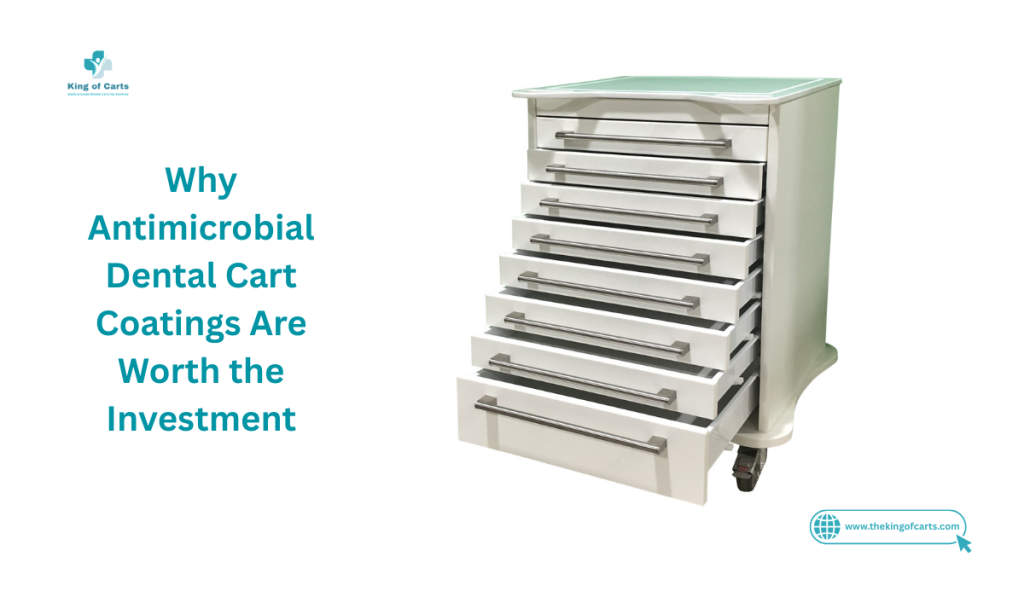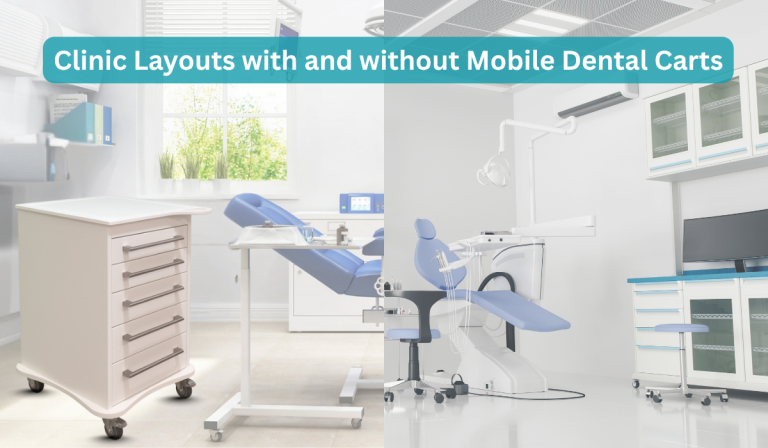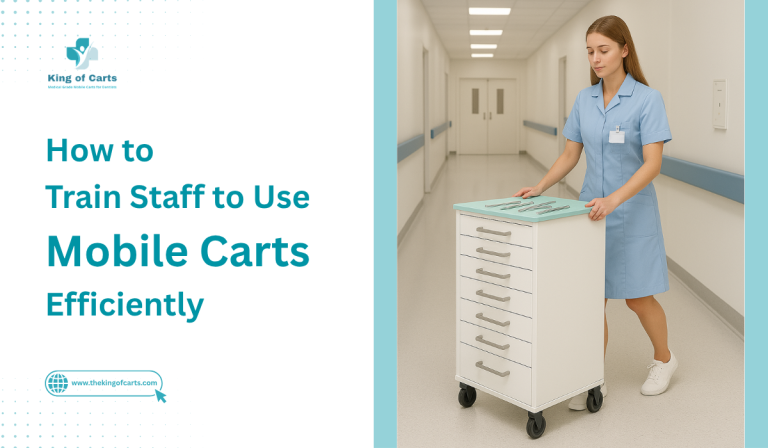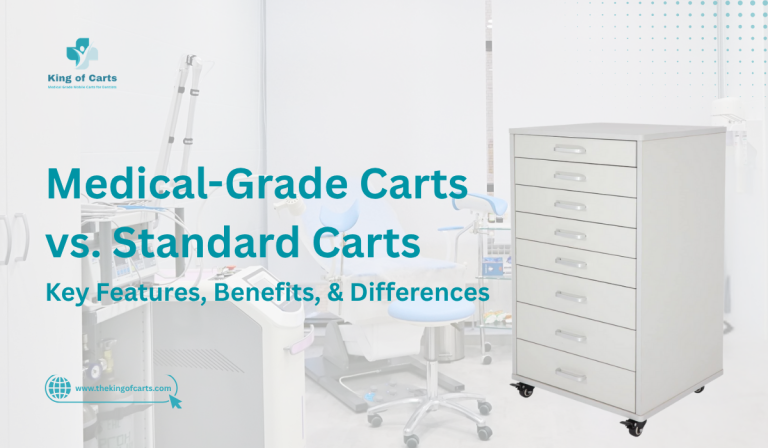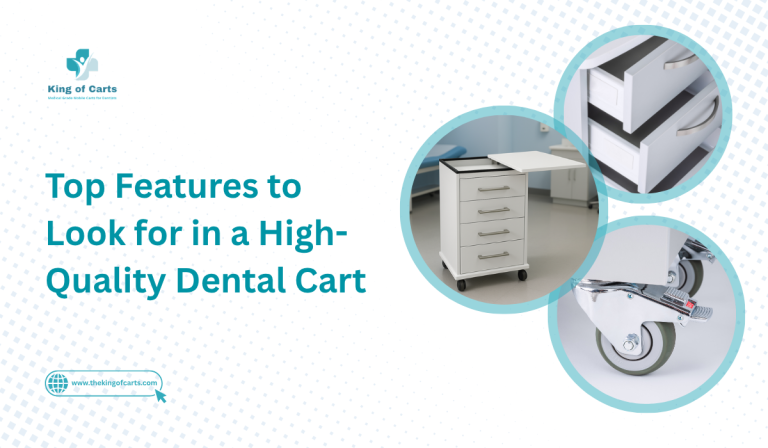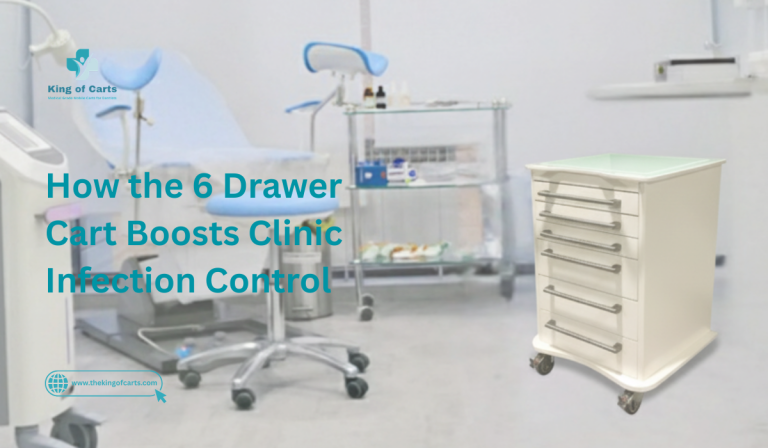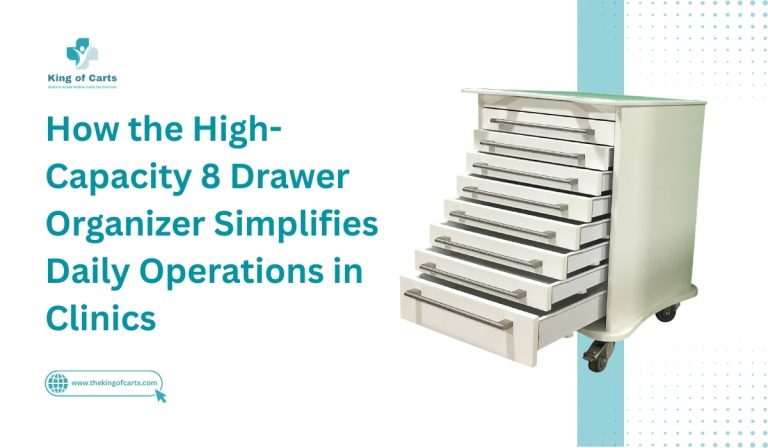In today’s fast-paced dental practices, efficiency, safety, and hygiene are non-negotiable. From sterilizing instruments to maintaining a spotless operatory, infection control protocols form the backbone of quality care. Yet, one area that often goes unnoticed is the dental cart. Dental carts are essential for organizing tools, streamlining workflows, and providing easy access to equipment. However, they are also high-contact surfaces—touched multiple times during each procedure by dentists, hygienists, and assistants.
This frequent use makes dental carts a potential breeding ground for harmful bacteria, viruses, and fungi. While standard cleaning and disinfection practices reduce contamination, they are not always foolproof. This is where antimicrobial dental cart coatings enter the picture. By integrating advanced protective surfaces, dental professionals can significantly enhance infection control while prolonging the lifespan of their equipment. In this article, we’ll explore why antimicrobial dental cart coatings are worth the investment, the science behind them, and how they benefit both clinics and patients.
Understanding Antimicrobial Coatings
Antimicrobial coatings are specialized surface treatments designed to prevent or reduce the growth of microorganisms. These coatings can be infused with agents such as silver ions, copper, or zinc, which actively disrupt microbial cell walls, interfere with DNA replication, or inhibit essential metabolic functions.
Unlike traditional disinfectants that work only when applied, using antimicrobial protection offers continuous, long-term protection. This makes them especially valuable in healthcare environments, where constant surface exposure increases the risk of contamination.
Why Dental Carts Need Antimicrobial Protection
Dental carts are among the most frequently touched surfaces in any practice. Without added protection, they can quickly become hotspots for germs, increasing the risk of cross-contamination and infection.
- High-Touch Surfaces: Dental carts are handled multiple times a day—not just by dentists but also by hygienists, assistants, and sometimes even patients. Drawers, handles, and shelves quickly accumulate germs, making them hotspots for cross-contamination.
- Limitations of Traditional Cleaning: No matter how thorough, manual cleaning has limitations. Busy practices often have back-to-back appointments, leaving little room for extensive cleaning between patients. Missed spots or inconsistent disinfection can allow microbes to linger.
- Infection Control Standards Are Rising: Global health events, such as the COVID-19 pandemic, have increased awareness about infection control. Patients now expect higher hygiene standards, and regulatory agencies are implementing stricter guidelines for clinics. Antimicrobial dental carts help meet these expectations.
- Protecting Dental Staff: Occupational exposure to pathogens is a serious concern in dentistry. By reducing microbial survival on carts, antimicrobial coatings act as an additional layer of defense for staff.
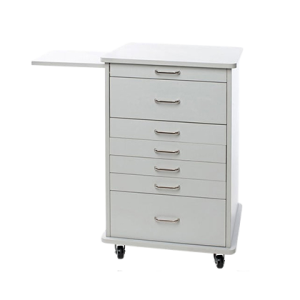
Benefits of Antimicrobial Dental Cart Coatings
Antimicrobial coatings do more than just enhance cleanliness—they provide ongoing protection, improve patient confidence, and extend the life of dental carts, making them a valuable investment for modern practices.
- Continuous Protection: One of the most significant advantages is around-the-clock microbial defense. Unlike disinfectants that wear off between cleanings, antimicrobial coatings remain active, ensuring that surfaces are continuously resistant to harmful pathogens.
- Reduced Cross-Contamination: In a dental clinic, cross-contamination can occur easily—from the cart to instruments, gloves, and even patients. Antimicrobial coatings minimize this risk by drastically reducing the microbial load on high-touch surfaces.
- Prolonged Equipment Lifespan: These coatings not only protect against microbes but also add durability. Many antimicrobial finishes are resistant to scratches, stains, and corrosion, extending the usable life of dental carts and reducing replacement costs.
- Enhanced Patient Trust: A clean, hygienic environment reassures patients. Dental practices that adopt advanced infection control measures such as antimicrobial carts project professionalism, safety, and care. This improves patient confidence and loyalty.
- Compliance with Regulations: As infection control guidelines evolve, antimicrobial surfaces help clinics stay compliant. They serve as an added safeguard alongside sterilization and cleaning protocols, reducing liability risks.
- Cost Efficiency Over Time: While the upfront cost may seem high, antimicrobial dental carts are a long-term investment. They reduce the frequency of deep-cleaning sessions, minimize repair/replacement expenses, and help prevent costly infection incidents.
The Science Behind Silver and Copper Based Coatings
Most antimicrobial dental cart coatings rely on silver ion or copper technology. Here’s how they work:
- Silver Ions: Penetrate microbial cell walls, disrupting vital cellular processes and preventing reproduction. Effective against bacteria, fungi, and some viruses.
- Copper: Generates reactive oxygen species that damage microbial DNA and membranes. Copper surfaces can kill pathogens within minutes, making them highly effective in clinical settings.
Both materials are safe for human use, environmentally friendly, and proven to reduce microbial survival rates significantly.
Comparing Antimicrobial Carts with Standard Carts
The comparison given below makes it clear that antimicrobial carts provide lasting benefits which significantly overcome the initial investment.
| Feature | Standard Dental Cart | Antimicrobial Dental Cart |
| Surface Protection | Requires frequent cleaning and disinfectants | Continuous antimicrobial action |
| Durability | Prone to scratches, stains, and wear | Enhanced resistance to damage |
| Infection Risk | Higher due to surface exposure | Lower due to microbial suppression |
| Cost Over Time | Lower upfront, higher long-term maintenance | Higher upfront, lower long-term expenses |
| Patient Perception | Standard hygiene | Advanced, modern infection control |
Factors to Consider When Investing in Antimicrobial Dental Carts
Not all antimicrobial carts are created equal. Evaluating coating technology, durability, certifications, design, and long-term value ensures you choose a solution that truly benefits your clinic.
- Coating Technology – Choose dental carts featuring advanced silver or copper-based antimicrobial technology, proven effective in preventing microbial growth and ensuring continuous protection against bacteria, viruses, and fungi in clinical environments.
- Durability – Invest in antimicrobial coatings designed to withstand daily use, scratches, and exposure to strong cleaning agents, ensuring long-lasting protection and preserving both cart performance and aesthetic appeal.
- Warranty & Certification – Reliable manufacturers back antimicrobial dental carts with certifications that confirm safety and effectiveness, alongside warranties that provide assurance of product quality and long-term investment security.
- Design & Functionality – Beyond antimicrobial benefits, prioritize ergonomic design, smart storage, and easy maneuverability. Functional, flexible carts improve workflow efficiency, helping dental teams deliver smooth, patient-focused care.
- Cost vs. Long-Term Value – Consider more than the initial price; antimicrobial carts reduce infection risks, replacement needs, and maintenance expenses, offering a higher return on investment through improved safety and practice reputation.
The Future of Dental Equipment Hygiene
With advances in nanotechnology and material science, antimicrobial surfaces are becoming more sophisticated and affordable. In the coming years, we can expect antimicrobial technology to extend beyond carts to include dental chairs, countertops, and even instrument trays.
As patient expectations rise, clinics adopting these innovations early will stand out as industry leaders. The combination of efficiency, safety, and patient trust makes antimicrobial dental cart coatings not just a luxury but a necessity for forward-thinking practices.
Conclusion
Infection control is no longer just about sterilizing tools or cleaning surfaces—it’s about building a comprehensive, multi-layered defense system. Antimicrobial dental cart coatings are a smart, future-proof investment that provides continuous protection, enhances patient trust, and safeguards staff.
While the upfront cost may seem higher, the long-term benefits in terms of hygiene, durability, and reputation make them well worth it. By upgrading to antimicrobial dental carts, dental practices can take a proactive step toward safer, cleaner, and more efficient care. Explore our range of antimicrobial dental carts today and invest in a healthier, more reliable future for your practice.
